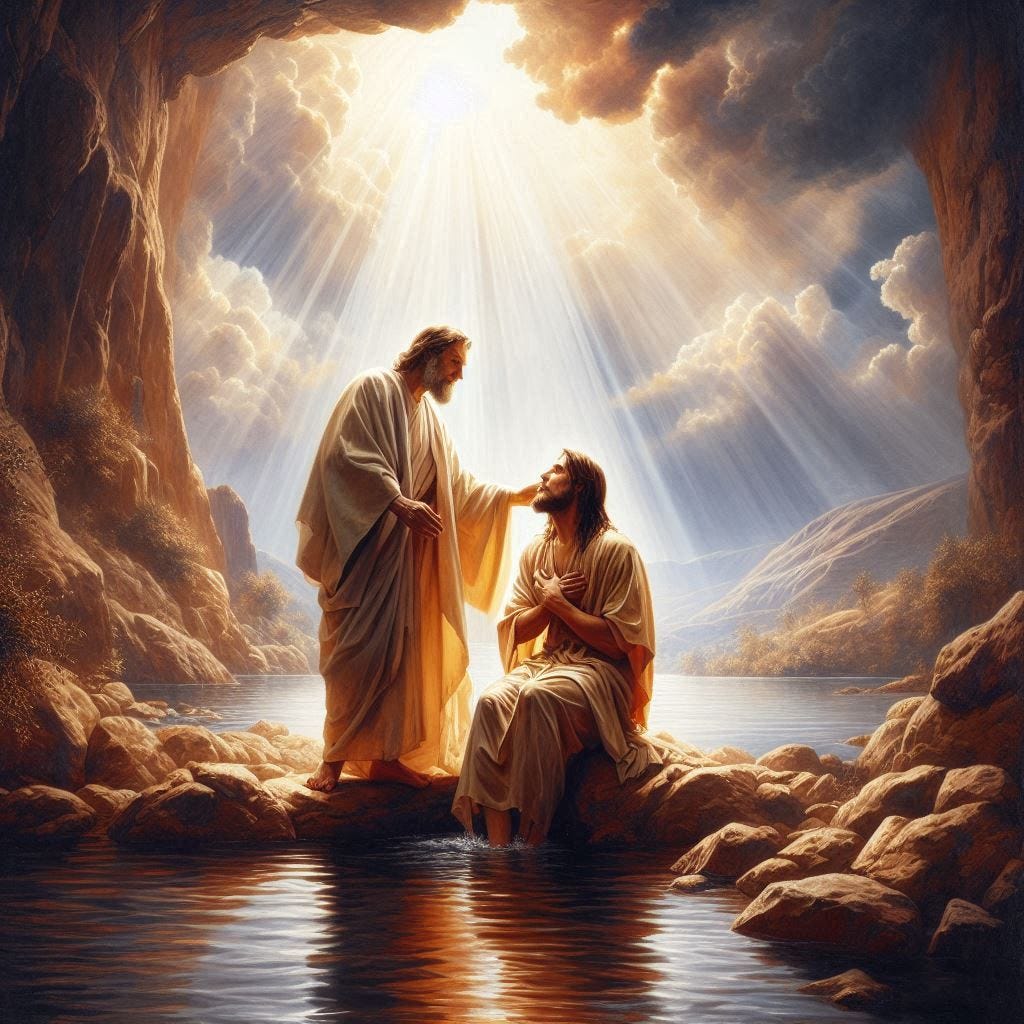Introduction: Is Baptist a True Religion?
The question, “Is Baptist a true religion?” can be explored from spiritual, theological, historical, and cultural perspectives. It requires an understanding of what it means for a religion to be “true” and an analysis of the Baptist faith within the broader context of Christianity. To answer this question comprehensively, we will delve into the origins of Baptist beliefs, their doctrinal distinctives, the role of Baptists in world history, and their place in modern society.
Understanding “True Religion”
Before answering the question, it is crucial to define what “true religion” means. For some, the term “true” implies adherence to the correct interpretation of religious texts or doctrines, while for others, it could mean the authentic expression of spiritual beliefs and practices. When considering whether Baptistism is a true religion, one must explore several dimensions:
- Scriptural Fidelity: Does the Baptist faith align with the Bible’s teachings?
- Historical Continuity: Is Baptistism historically rooted in authentic Christianity?
- Theological Soundness: Are Baptist doctrines consistent with the key tenets of the Christian faith?
- Practical Application: Does the Baptist faith positively impact the lives of its adherents and society at large?
By answering these questions, we can explore the nature of the Baptist faith and its place in the broader Christian community.
Origins of the Baptist Faith

Like most Christian denominations, the Baptist faith traces its roots back to Jesus Christ’s ministry and the apostolic age. However, the modern Baptist tradition began to take shape in Europe in the 17th century. The first Baptists emerged in England during the Protestant Reformation as a response to the state-sponsored Anglican Church and the Roman Catholic Church’s authority.
The key historical event that marked the beginning of the Baptist movement was the split from the Church of England. Early Baptists, including figures like John Smyth and Thomas Helwys, argued that the true church should be made up of believers who had made a conscious decision to follow Christ, rejecting infant baptism. This was a radical departure from the practices of the Roman Catholic Church and the Church of England, both of which practiced infant baptism.
Core Beliefs and Practices of Baptists
At the heart of the Baptist faith are several core beliefs and practices that distinguish them from other Christian denominations. These include:
Believer’s Baptism:
Baptists hold to the doctrine of believer’s baptism, meaning that baptism should only be administered to individuals who have made a personal profession of faith. This stands in contrast to the practice of infant baptism, which is common in other Christian denominations such as Roman Catholicism, Eastern Orthodoxy, and certain Protestant branches.
Authority of Scripture:
Baptists affirm the doctrine of “sola scriptura,” which teaches that the Bible alone is the authoritative source for Christian belief and practice. This belief places the Bible at the center of Baptist theology, and adherents are encouraged to read and interpret Scripture individually, under the guidance of the Holy Spirit.
Autonomy of the Local Church:
Another key distinctive of Baptists is their emphasis on the autonomy of the local congregation. Each Baptist church is self-governing, meaning that it is independent from external hierarchical control, including from denominational bodies or church leaders. This belief in church autonomy stems from their interpretation of the New Testament, where each church is seen as having the responsibility to manage its affairs.
Religious Liberty:
Baptists have historically been strong advocates for religious freedom and the separation of church and state. One of the earliest Baptist leaders, Roger Williams, was an outspoken proponent of the separation of church and state in colonial America. This doctrine upholds the belief that individuals should have the right to worship according to their conscience, without coercion or interference from the government or other religious authorities.
Salvation by Grace through Faith:
Like other Protestant denominations, Baptists believe in salvation through faith in Jesus Christ alone. They teach that salvation is a gift from God, granted by His grace and received through faith in the atoning work of Christ on the cross. This doctrine is central to the understanding of salvation in Baptist theology.
The Priesthood of All Believers:
Baptists emphasize the role of every believer in the church, asserting that all Christians are priests before God. This concept implies that each individual has direct access to God through prayer and that all believers are responsible for sharing the Gospel and ministering to others.
Theological Soundness: A Comparison with Other Christian Denominations
In terms of theological beliefs, Baptistism is considered by many scholars to be in full alignment with core Christian doctrines. Baptists adhere to the historic creeds of Christianity, such as the Nicene Creed and the Apostles’ Creed, which affirm the essential Christian beliefs in the Trinity, the divinity of Christ, His death and resurrection, and the promise of eternal life.
Baptists are also part of the Protestant tradition, having broken from the Roman Catholic Church in the Reformation era. As such, they reject certain Catholic doctrines, such as the authority of the pope, the veneration of saints, and the sacraments as means of grace. Baptists also differ from many Protestant denominations in their rejection of infant baptism, instead emphasizing the need for personal faith and voluntary baptism by immersion.
Despite these differences, Baptists share much in common with other Christian denominations, particularly in their understanding of salvation. Like most Christians, Baptists believe in the centrality of Christ’s death and resurrection as the means by which humanity can be reconciled to God.
Baptists and the Broader Christian Community
Is Baptistism, then, a true religion in the context of the larger Christian community? While the question of “true religion” often depends on one’s theological perspective, it is important to note that Baptists are a significant and respected part of global Christianity. With millions of adherents worldwide, Baptists are a diverse group that represents a major branch of the Christian faith.
Baptists share essential Christian convictions with other believers but also possess distinct theological and ecclesiological characteristics that make their tradition unique. This diversity within Christianity reflects the variety of ways that Christians have interpreted Scripture and lived out their faith throughout history.
One important distinction is the emphasis on individual conscience in matters of faith and practice. This emphasis on personal conviction has led Baptists to advocate for religious freedom and the separation of church and state, values that are deeply embedded in the American political and social system. In this sense, the Baptist faith has had a significant impact on the development of religious liberty and democracy, especially in the United States.
Baptists’ Influence in World History
The influence of the Baptist tradition extends beyond theology into the realms of politics, social movements, and cultural change. One notable example is the role that Baptist leaders played in the civil rights movement in the United States. Prominent Baptist ministers, such as Dr. Martin Luther King Jr., were instrumental in the struggle for racial equality and justice. King’s theology, rooted in Baptist Christian principles, provided a moral and spiritual framework for the civil rights movement and continues to inspire social justice movements today.
Globally, Baptists have contributed to the spread of Christianity, particularly through missionary work. Many Baptist missionaries have worked to establish churches, schools, hospitals, and orphanages in regions of the world where Christianity was not traditionally practiced. Their evangelical zeal and commitment to spreading the Gospel have led to the growth of Baptist communities in Africa, Asia, and Latin America.
Baptists Today: A Diverse and Dynamic Faith
In the 21st century, the Baptist tradition continues to evolve and adapt to new cultural contexts. Baptists are found in a wide range of countries and cultures, and their theology and practice reflect the diversity of the global Christian community. In some parts of the world, Baptists are part of larger evangelical movements, while in others, they are more closely aligned with mainline Protestantism.
Despite this diversity, Baptists continue to emphasize the centrality of Scripture, believer’s baptism, and the autonomy of the local church. They remain a vibrant and growing part of global Christianity, with a strong commitment to spreading the Gospel and advocating for religious freedom and justice.
Is Baptistism a True Religion?
To address the central question of whether Baptistism is a “true” religion, we must understand that the concept of truth in religion is complex and subjective. From a Christian theological perspective, the Baptist tradition is firmly rooted in the Bible, adheres to core Christian doctrines, and contributes meaningfully to the global Christian community. Baptists believe they are faithfully following the teachings of Jesus Christ and the apostles, and they strive to live out their faith with integrity and conviction.
From this standpoint, Baptistism can certainly be considered a true religion within the context of Christian orthodoxy. While other Christians may hold different theological views, the Baptist faith remains a vibrant and influential expression of the Christian tradition. Whether one agrees with every doctrine or practice of Baptistism, it is clear that Baptists are sincere in their faith, committed to the teachings of Scripture, and active in spreading the message of Jesus Christ.
Conclusion
In the final analysis, the question of whether Baptistism is a true religion depends largely on one’s perspective on what constitutes religious truth. For Baptists, their faith is an authentic and sincere expression of Christian belief, rooted in the Bible and the teachings of Jesus Christ. Baptists are committed to living out their faith through practices such as believer’s baptism, evangelism, and advocacy for religious freedom, all of which reflect their understanding of God’s will. As a major Christian denomination with a rich history and global presence, Baptistism can be regarded as a true religion within the broader Christian community.
In conclusion, Baptistism holds a significant place in the religious landscape, and its doctrines, practices, and historical contributions make it a vital part of the Christian faith.
